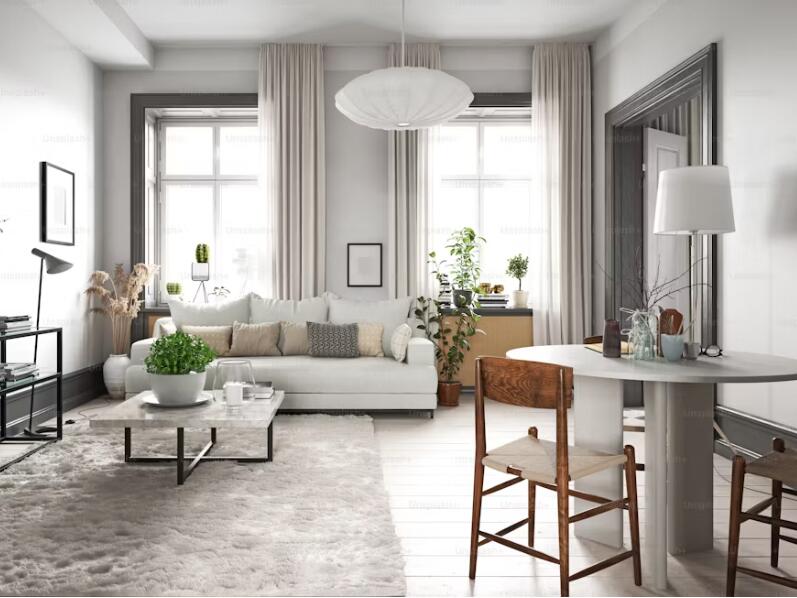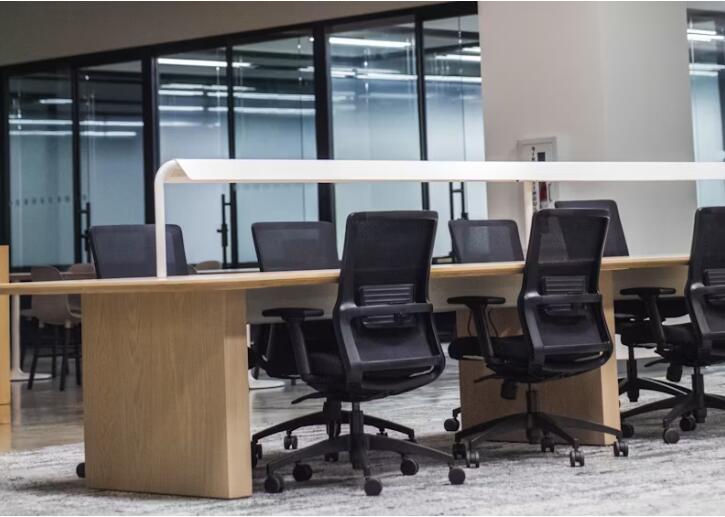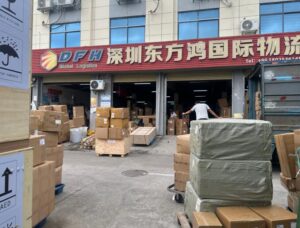Importing from China to Australia is one of the smartest moves you can make as a business owner, e-commerce seller, interior designer, or procurement manager. With lower manufacturing costs, an endless product variety, and access to global logistics, China offers unmatched benefits. In this complete guide, I will walk you through every detail of the import process—even if you’re a total beginner.
By the end of this article, you’ll know exactly how to:
- Find trustworthy suppliers in China
- Choose the right shipping method
- Understand customs, taxes, and documents
- Estimate your total landed cost
- Avoid common mistakes and delays
Let’s dive in.
Why Should You Import Furniture from China to Australia?
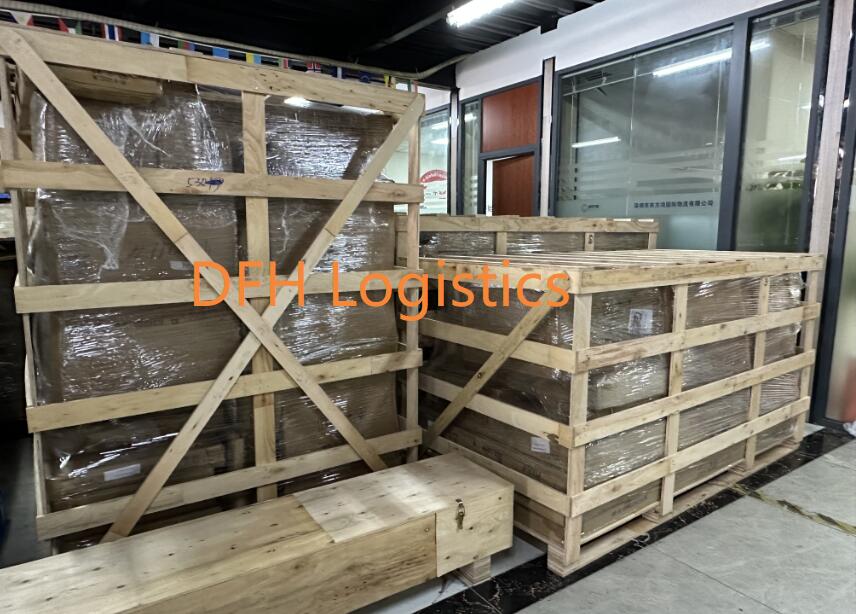
Australia’s domestic furniture market can’t compete with China’s price-to-quality ratio. Here’s what makes importing from China the preferred option:
- Lower Production Costs: Ideal for wholesale and retail margins
- Greater Design Range: Modern, minimalist, traditional, and more
- Custom OEM/ODM Services: Create your own branded line
Whether you’re furnishing commercial spaces, retail shops, or Airbnb rentals, importing from China offers the scalability and customization you need.
What Types of Furniture Can You Import from China?
You can import virtually any furniture from China, but here are the most popular categories Australians choose:
Home Furniture: Beds, sofas, wardrobes, dining tables

Office Furniture: Workstations, office chairs, reception desks

Outdoor Furniture: Rattan lounges, garden tables, patio sets

- Hospitality Furniture: Hotel chairs, lobby sofas, cafe tables
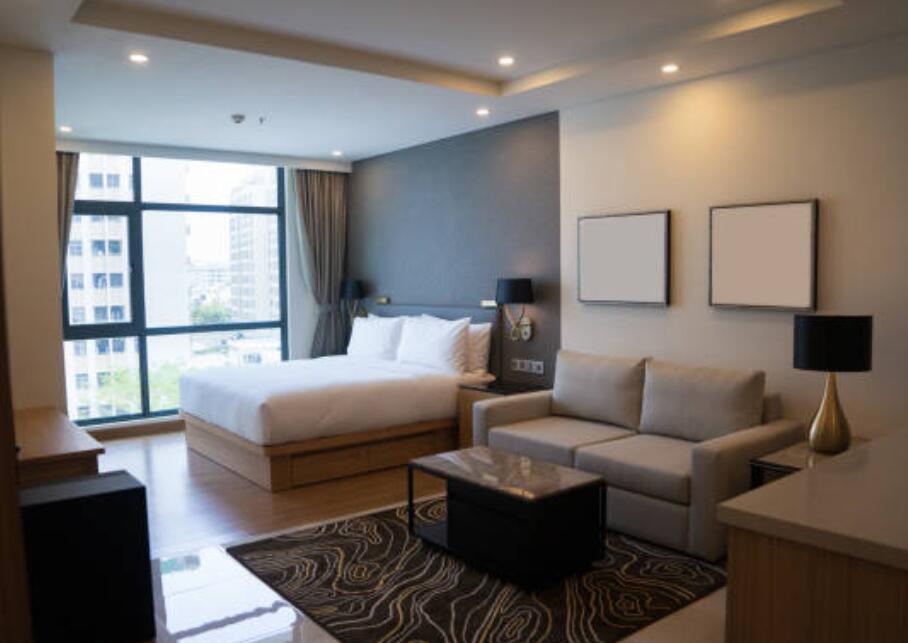
- Custom OEM Products: Tailored for brand-specific designs
Pro Tip: Start small with standard designs, then scale into custom OEM models once you’ve established supplier trust.
How Can You Find Reliable Furniture Suppliers in China?
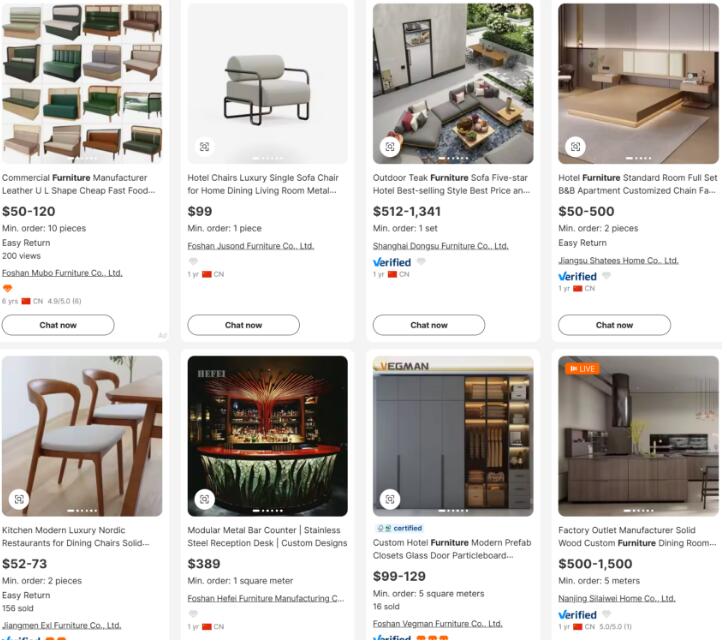
There are four main ways to find furniture suppliers:
1. Online B2B Marketplaces
Use advanced filters and always message multiple suppliers (3–5) to compare quotes and lead times.
2. Social Media & Video Channels
Look on TikTok, YouTube, Facebook, and Instagram using keywords like “furniture factory in China” or “wholesale furniture China.”
3. Attend Trade Shows or Visit Markets
- CIFF: China’s top furniture exhibition
- Canton Fair: Wide variety of products
- Foshan Furniture Market: Best for in-person bulk buying
4. Work with a Sourcing Agent
Partnering with a China-based sourcing agent helps you:
- Find verified factories
- Negotiate better pricing
- Conduct quality inspections
- Communicate in your time zone
Insider Insight: DFH Logistics has trusted sourcing partners we can connect you with.
What is the Step-by-Step Process to Import Furniture into Australia?

Step 1: Define Your Product Requirements
Before contacting suppliers, be clear on:
- Product dimensions
- Materials and finishes
- Quantity
- Packaging requirements
Step 2: Send RFQs and Compare Suppliers
Send a clear RFQ (Request for Quotation) and include technical drawings or images. Compare quotes, response times, MOQs, and certifications.
Step 3: Order Product Samples
Always test samples for:
- Build quality
- Finish consistency
- Packaging safety
Step 4: Finalize Order Contract
Sign a contract that covers:
- Price
- Delivery time
- Payment terms
- Incoterms (FOB, CIF, DDP)
Step 5: Choose the Right Shipping Method
Options include LCL, FCL, Air Freight, and DDP (more below).
Step 6: Arrange Customs Clearance & Final Delivery
Use a professional freight forwarder like DFH Logistics to handle:
- Port logistics
- Duty/GST payments
- Final mile delivery
Tip for New Importers: Always choose DDP shipping for your first few orders—it’s hassle-free and includes everything.
What Are the Best Shipping Methods from China to Australia?

| Method | Best For | Transit Time | Cost | Notes |
|---|---|---|---|---|
| LCL Sea Freight | Small orders | 25–35 days | \$\$ | Share a container, affordable per CBM |
| FCL Sea Freight | Large volume orders | 20–30 days | \$\$ | Lower cost per unit for full containers |
| Air Freight | Urgent or lightweight goods | 5–10 days | \$\$\$\$ | Expensive; volume and weight limits |
| DDP Shipping | Beginners or time-savers | 30–40 days | \$\$\$ | All-inclusive; DFH handles every step |
How Much Does It Cost to Import Furniture to Australia?

| Item | Cost (AUD) |
|---|---|
| Product Cost (FOB) | \$7,000 |
| LCL Freight to Australia | \$1,600 |
| Import Duty & GST | \$1,200 |
| Port & Customs Fees | \$500 |
| Local Trucking (Sydney) | \$650 |
| Total Estimate | \$10,950 |
Costs vary by volume, route, and current fuel rates. Ask DFH for a live quote tailored to your project.
While if you ship by LCL sea shipping from China to Australia, then usually the shipping price will be charged by the Charge weight
What Documents Are Required for Importing Furniture into Australia?
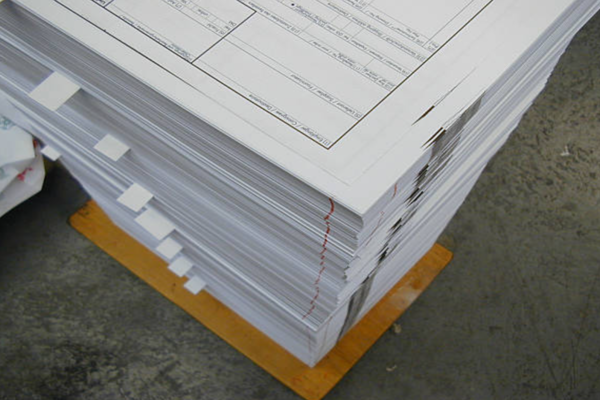
You’ll need the following paperwork:
- Commercial Invoice
- Packing List
- Bill of Lading or Air Waybill
- Certificate of Origin
- Australian Business Number (ABN)
Let Us Handle It: We take care of all paperwork under our DDP service.
What Are the Packaging Requirements for Shipping Furniture?
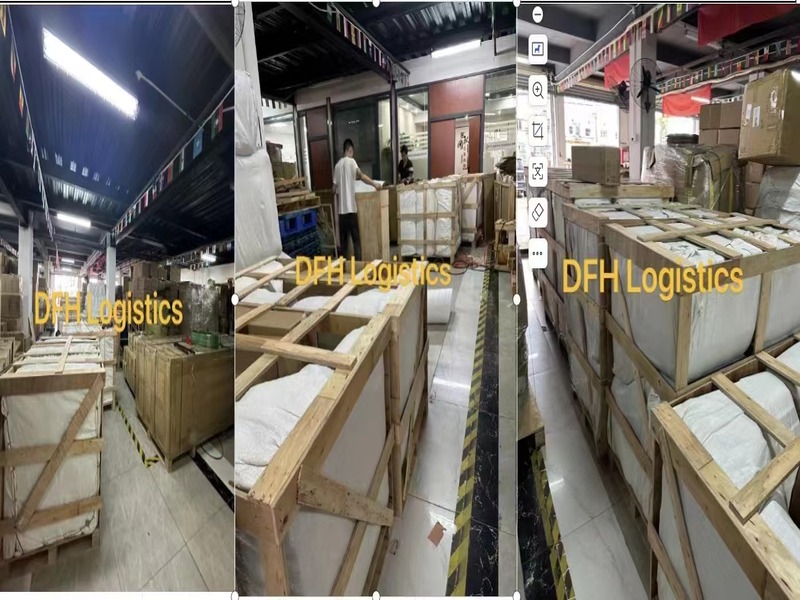
Proper packaging is essential to avoid transit damage.
- Protective Material: Foam, edge guards, anti-scratch film
- Crate Packaging: Especially for fragile goods like mirrors or glass
- Clear Labeling: Item codes, consignee address, and handling instructions
- ISPM-15: Wooden packaging must be heat-treated for Australian biosecurity
Watch how we crate and protect furniture
What Are the Import Duty & GST Rates for Furniture in Australia?
Below are the estimate duites and GST rates, the exactly based on your detail hs code when importing.
| HS Code | Product Description | Duty Rate | GST |
|---|---|---|---|
| 9403.60 | Wooden furniture | 5% | 10% |
| 9401.79 | Upholstered chairs/sofas | 4% | 10% |
All taxes and duties are included in DDP quotes from DFH.
So if you don’t know how much need to pay and worry about the complicate shipping documents and the customs clearance, you choose the DDP shipping solution is the best one.
What Are the Common Importing Problems and How Can You Solve Them?
| Problem | Solution |
|---|---|
| Damaged Furniture | Use professional crate packaging and insurance |
| Customs Delays | Select DDP service to avoid clearance issues |
| Supplier Miscommunication | Work with a bilingual sourcing agent or DFH rep |
| Surprise Charges | Always request a DDP all-inclusive quote |
| Document Errors | Let DFH manage all paperwork and customs procedures |
| Small Batch Orders | Use DFH consolidation service to save on LCL costs |
Why Is DFH Logistics the Best Choice for Importing to Australia?
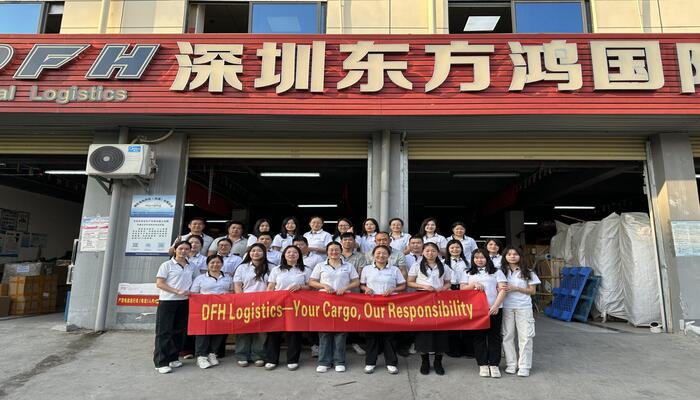
Choosing the right logistics partner can make or break your importing experience. At DFH Logistics, we specialize in helping Australian businesses and individuals streamline their imports from China. With over a decade of industry experience, we’ve perfected a fully managed, hassle-free process that minimizes risk, controls costs, and maximizes delivery reliability.
Here’s what makes DFH stand out from the rest:
Complete DDP to Any Address in Australia
We handle everything—from pickup at the Chinese factory to final delivery at your Australian home, warehouse, or business address. All duties, GST, customs clearance, and documentation are taken care of under one transparent DDP quote.Factory Consolidation & Repacking
Buying from multiple suppliers? No problem. We consolidate your cargo at our China warehouse, inspect and repack it to reduce volume and risk of damage—saving you money on freight costs.Custom Crate Solutions & Quality Checks
Fragile or bulky furniture items are professionally crated with ISPM-15-compliant wood packaging. We also provide pre-shipment quality control and inspection services to ensure product integrity before dispatch.Experienced Australia Freight Team
Our Australia-focused operations team understands local customs requirements, port logistics, quarantine standards, and last-mile delivery networks across all major cities—including Sydney, Melbourne, Brisbane, and Perth.Real-Time Tracking & One-on-One Support
You’ll receive a dedicated account manager who will walk you through every step and keep you updated with tracking milestones. No guesswork, no surprises—just reliable communication and support from start to finish.
Contact DFH Logistics Now to simplify your import journey and get a custom solution tailored to your business needs.
What Can You Learn from a Real Australian Furniture Import Case Study?
- Business Type: Australian lifestyle store
- Imported Items: Dining chairs, bookshelves, mirrors
- Shipping Option: LCL DDP via sea freight
- Timeframe: 30-40 days from supplier to doorstep
- Result: Saved over \$6,800 AUD compared to local sourcing

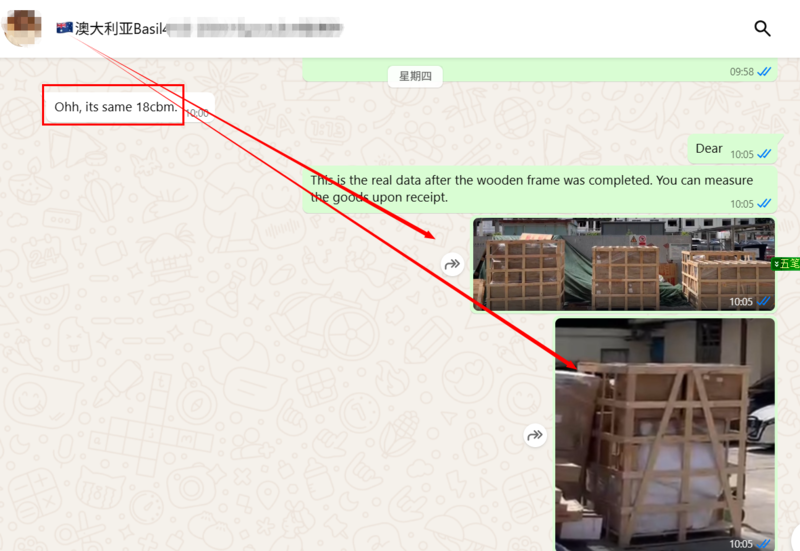
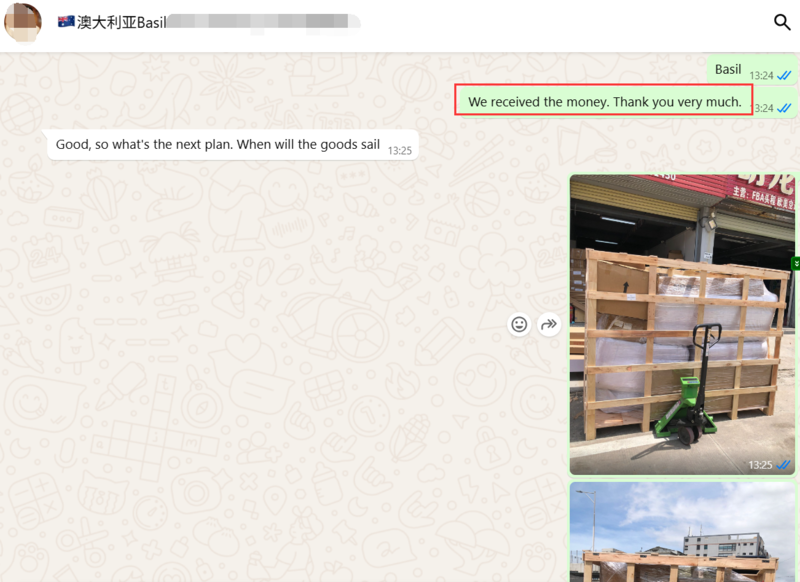
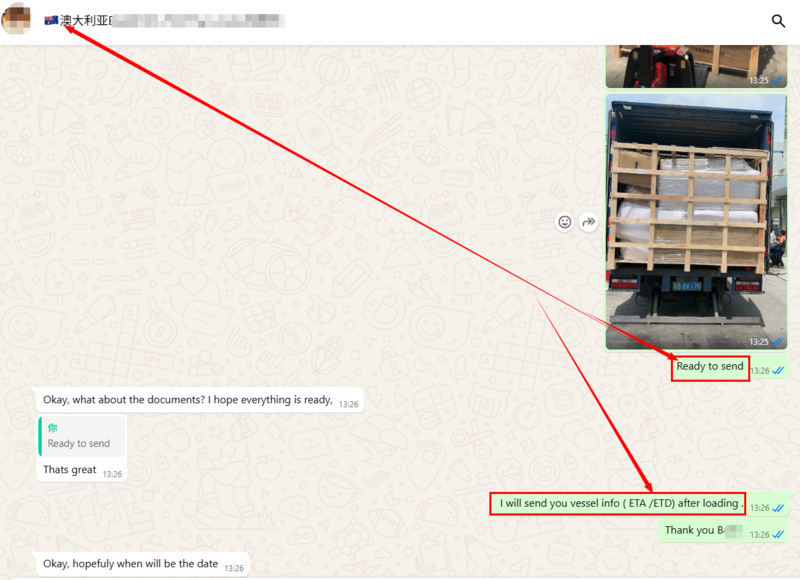
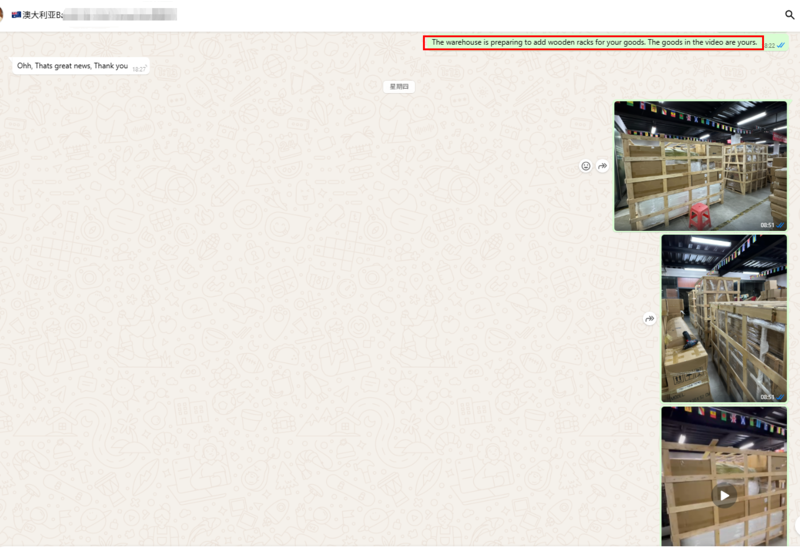
FAQs – Importing Furniture from China to Australia
Q1: Do I need an Australian Business Number (ABN) to import furniture?
Yes, if you’re importing commercially, you need an ABN to clear customs and claim GST credits. However, if you use DDP shipping with DFH Logistics, we can handle the entire process even if you’re a first-time or individual importer.
Q2: How long does it take to ship furniture from China to Australia?
LCL sea freight typically takes 25–40 days depending on the route and destination city. Air freight is faster (5–10 days), but more expensive. DDP sea shipments usually arrive within 30–45 days.
Q3: What are the import duties and taxes I need to pay?
Furniture typically attracts a 4–5% duty rate and a 10% GST. However, if you choose DDP shipping with DFH, all taxes and customs charges are already included in your quote.
Q4: Can I import multiple furniture items from different suppliers in one shipment?
Yes. DFH Logistics offers consolidation services. We collect goods from multiple suppliers, inspect them, repack if needed, and ship everything in one cost-effective container.
Q5: Do I have to visit China to verify my suppliers or products?
No, it’s not necessary. DFH can provide factory photos, product videos, and even arrange third-party quality inspection services before shipment.
Q6: What are the risks of importing furniture from China?
The most common risks include transit damage, supplier miscommunication, hidden fees, and customs delays. Working with a professional freight forwarder like DFH greatly reduces these risks.
Q7: Can I insure my shipment against damage or loss?
Absolutely. DFH Logistics can add cargo insurance to your shipment upon request. We also offer professional crating and packing services to minimize damage risk during transit.
Q8: Is DDP shipping really all-inclusive?
Yes. DDP (Delivered Duty Paid) includes freight, customs clearance, duties, GST, and even final delivery to your door. It’s the best option for importers who want a worry-free, fully managed solution.
Q9: What Incoterm should I choose for importing furniture?
For beginners, we highly recommend DDP (Delivered Duty Paid) because it includes all costs and customs clearance. For experienced importers, FOB or CIF may offer more flexibility—but they also involve more responsibility.
Q10: Can I track my shipment from China to Australia in real time?
Yes. DFH Logistics provides full tracking, including vessel movement, port updates, and estimated delivery schedules. You’ll also get updates from your dedicated account manager.
Q11: What’s the minimum order quantity (MOQ) when buying furniture from China?
MOQs vary by supplier, but many start at around 5–50 pieces per item. If you need smaller quantities, we can help source flexible suppliers or consolidate small orders from multiple factories.
Q12: What kind of packaging is best for furniture shipments?
We recommend custom wooden crates for fragile items, and strong export-grade cartons with corner protection for standard items. All packaging should comply with ISPM-15 standards for Australian biosecurity.
Q13: Will Australian customs inspect my furniture shipment?
Yes, Australia has strict biosecurity controls. Your shipment may be subject to inspection—especially if it includes wood or upholstery. Choosing proper packaging and accurate documentation helps prevent delays.
Q14: Can DFH help me with labeling and barcode requirements for Australia?
Absolutely. We offer labeling, barcoding, palletizing, and even re-packing services to ensure your products meet Australian retailer or marketplace requirements.
Q15: Is it cheaper to ship via LCL or FCL to Australia?
For small shipments under 15 CBM, LCL is more cost-effective. For larger volumes, FCL (20ft or 40ft containers) gives you a better per-unit shipping rate and reduces damage risk.
Q16: Can I get help with furniture product sourcing if I don’t know any Chinese suppliers?
Yes. DFH works closely with professional sourcing agents who can help you identify reliable furniture manufacturers, negotiate prices, and even supervise production.
Conclusion
Importing furniture from China to Australia can be a game-changer for your business. With lower costs, a wide range of options, and full-service support from DFH Logistics, the process becomes predictable and profitable.
Let us handle your first shipment with care and expertise. Click here to get a fast, no-obligation quote.


